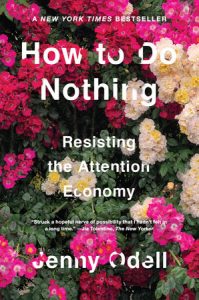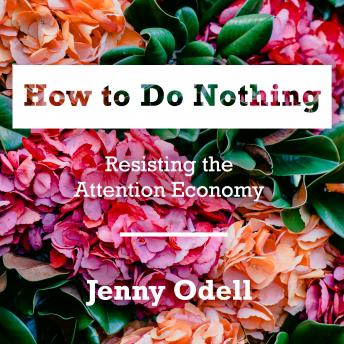

Odell also raises the concern that we are losing our ability to refuse and its consequences.Ĭhapter 4: Exercises in Attention was a little harder to understand, but it’s about attention and will. Odell looks at the communes of the 1960s and why they happened and how they failed.Ĭhapter 3: Anatomy of a Refusal continues the story started in Chapter 2 and looks at how people might refuse to participate in the ‘attention economy’. The decreasing ability of humans to stop and listen/practice Deep Listening is tied to the “battle playing out for our time, a colonization of the self by capitalist ideas of productivity and efficiency.” In other words, we’re getting so busy we won’t have the time to sit back and evaluate if this is the life we want and to change our attitudes towards the world.Ĭhapter 2: The Impossibility of Retreat looks at people who opted to drop out of society.

The example of Deep Listening, which is “listening in every possible way to every thing possible to hear no matter what you are doing”, is brought up as an example of how we need to hone our ability to stop to listen, which in turn will allow us to change our attitude to the world. This is a pretty difficult book to summarise in one paragraph, so here’s my understanding of the six chapters:Ĭhapter 1: The Case for Nothing talks about how doing nothing has its benefits.

One of the hosts mentioned that How to Do Nothing captured her feelings about social media pretty well, and it got me curious enough to read. I first heard this book from the Would Quitting Instagram Make You Happier episode of Why’d You Push That Button.


 0 kommentar(er)
0 kommentar(er)
